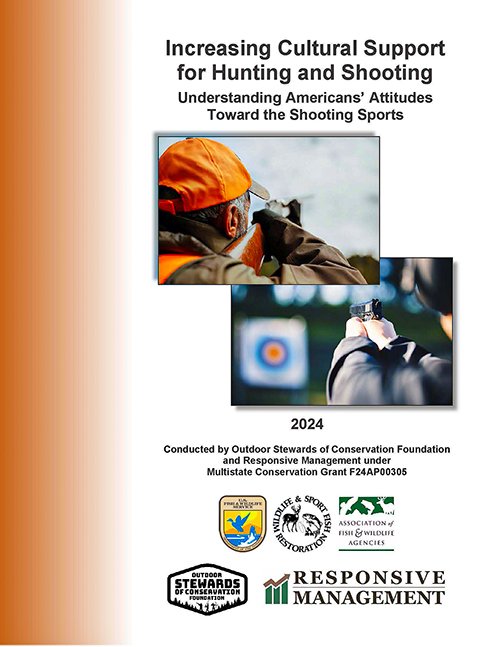
Hunting
Responsive Management has conducted more than two hundred studies related to hunting.
Below is a list of recent examples. Please contact us for additional examples or further information.
Americans’ Attitudes Toward Hunting and Sport Shooting: National Trend Study, conducted for the Council to Advance Hunting and the Shooting Sports
Increasing Cultural Support for Hunting and Shooting Understanding Americans’ Attitudes Toward the Shooting Sports, conducted by Responsive Management and the Outdoor Stewards of Conservation Foundation under a Multistate Conservation Grant
Michigan Residents’ Attitudes Toward Hunting, Fishing, and Wildlife Conservation, conducted for the Michigan Wildlife Council
The Attitudes of Maine Residents’, Landowners’, and Hunters’ Regarding Deer, Moose, Bear, and Turkey, conducted for the Maine Department of Inland Fisheries and Wildlife
Maryland Residents’, Landowners’, and Hunters’ Attitudes Toward Deer Hunting and Deer Management, conducted for the Maryland Department of Natural Resources in cooperation with University of Delaware
Oregon Deer and Elk Hunters’ Attitudes Toward Big Game Management and Hunting Opportunities, conducted for the Oregon Department of Fish and Wildlife
Arkansas Hunters’ Participation in and Opinions on Deer and Turkey Hunting, conducted for the Arkansas Game and Fish Commission
Harvest of Deer, Bear, and Wild Turkey in West Virginia, conducted for the West Virginia Division of Natural Resources
Deer Hunting and Harvest Management in Vermont, conducted for the Vermont Fish and Wildlife Department
For more information or a copy of a report, please contact us.
Please note that not all reports are publicly available.



